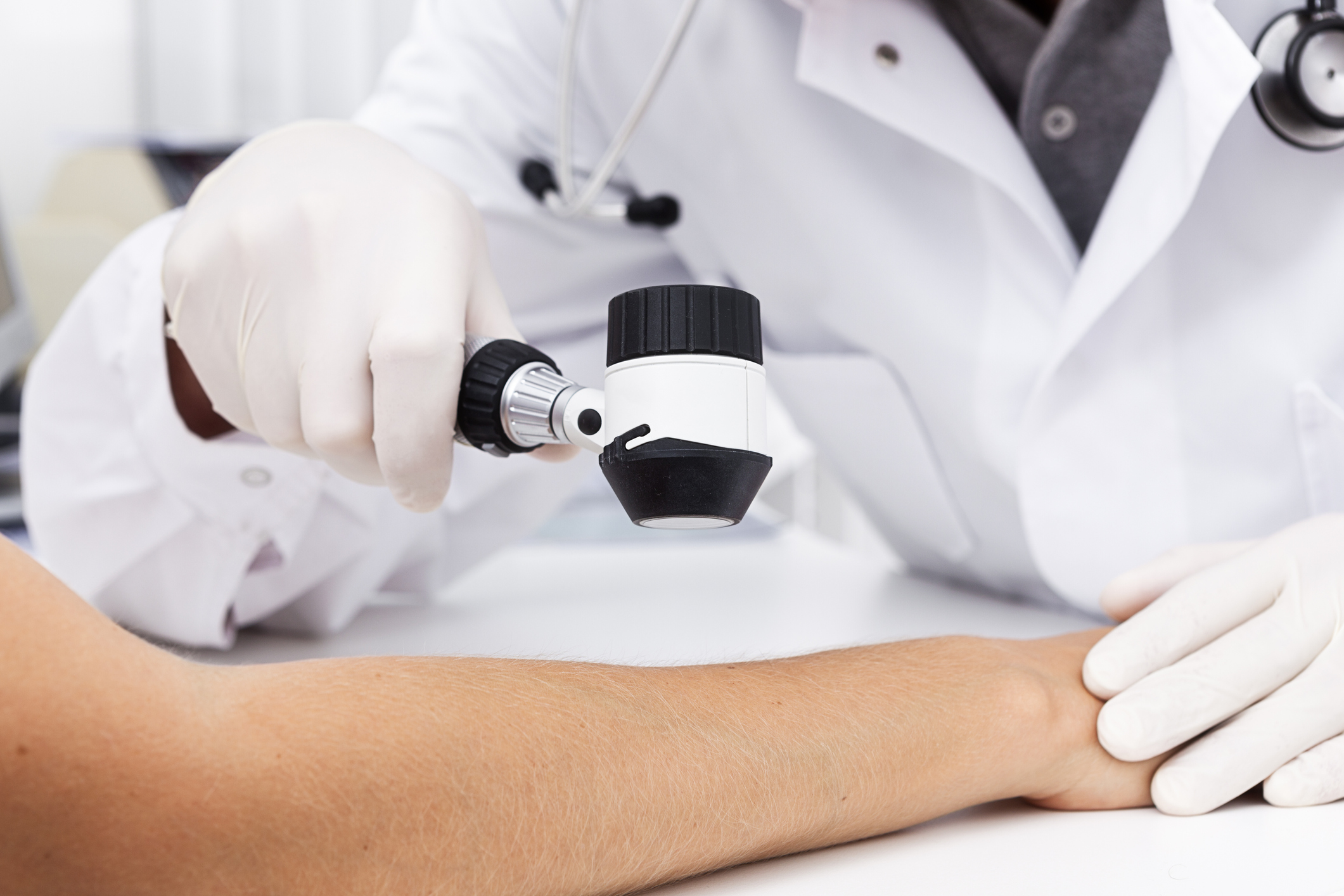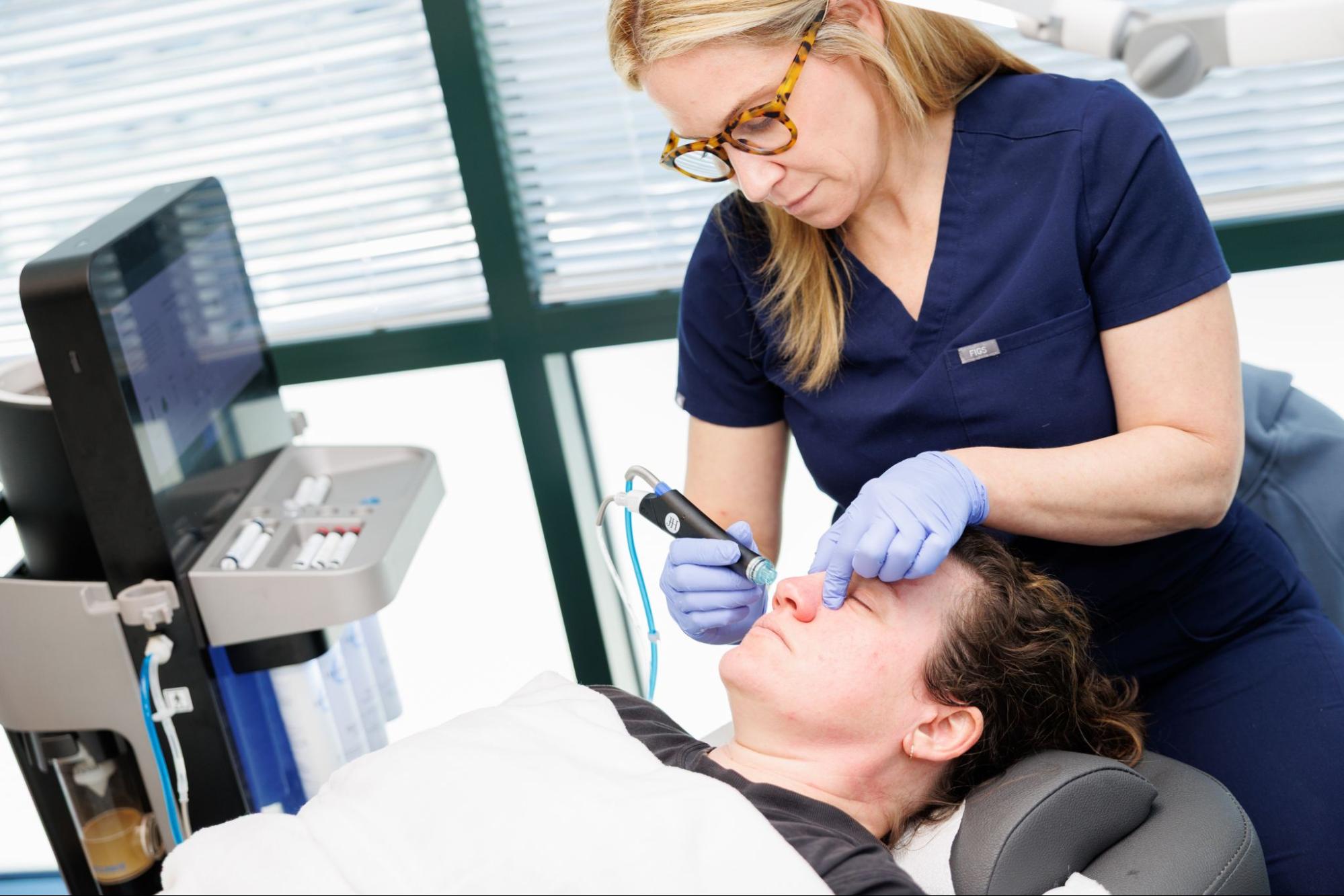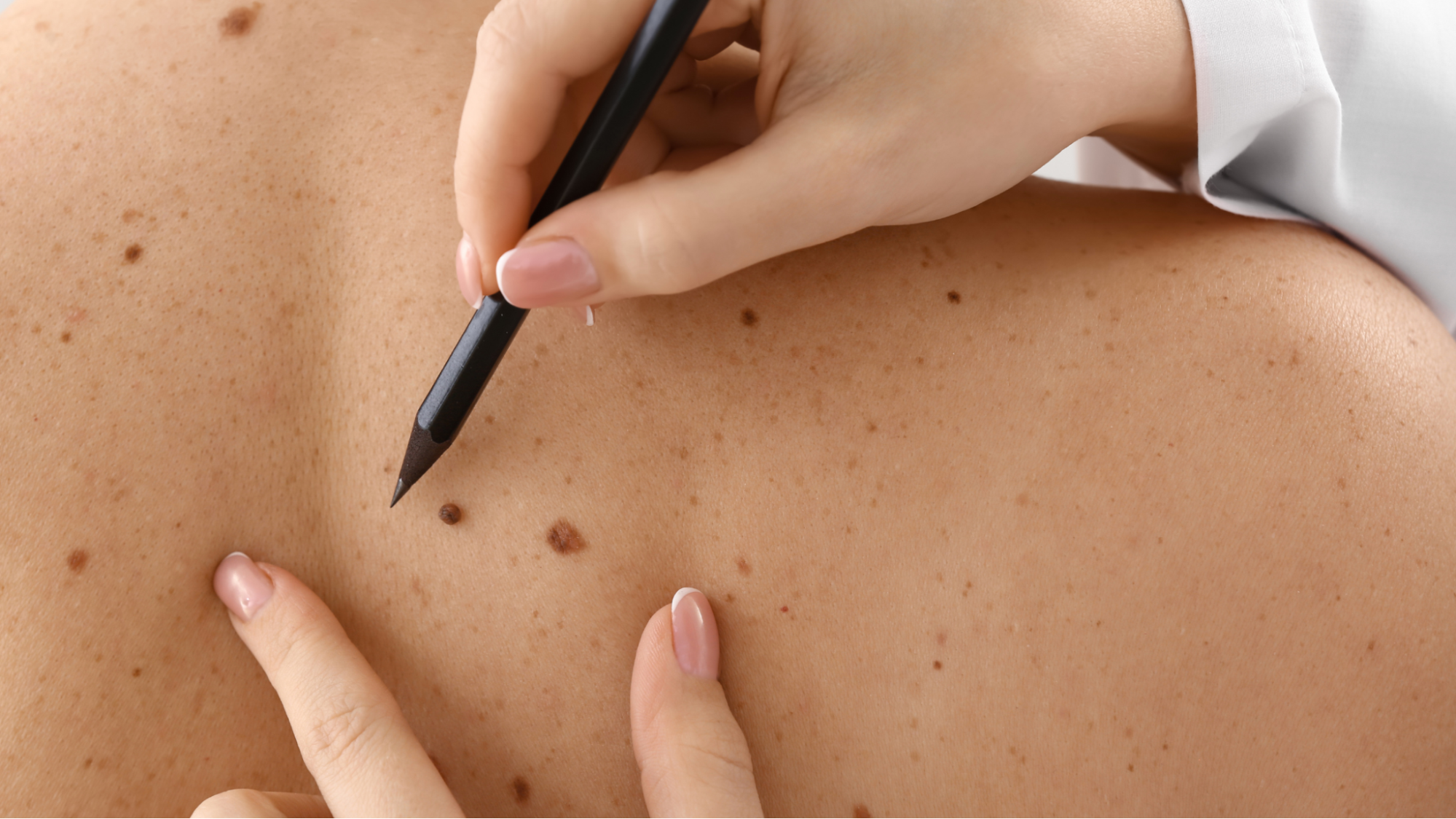May is Skin Cancer Awareness Month, which serves as a timely reminder of the importance of prioritizing our skin health. As the summer months approach and we spend more time outdoors, it becomes crucial to be mindful of the risks associated with skin cancer. One of the most effective ways to detect skin cancer early on is through regular screenings performed by a board-certified dermatologist. While skin cancer is the most common cancer in the United States, it’s also one of the most preventable. Keep reading, as we dive into the intricacies of skin cancer diagnosis, exploring the techniques, tools, and expertise involved in this crucial process.
Visual Examination
The initial step in skin cancer diagnosis involves a meticulous visual examination. As dermatologists, we rely on our trained eyes to identify any suspicious lesions or irregularities on the skin. We closely observe the size, shape, color, texture, and border characteristics of the lesions, as well as their growth patterns over time.
Dermoscopy
Dermoscopy is a non-invasive technique that magnifies the skin surface, allowing for a more detailed evaluation of skin lesions. Using a dermatoscope—a specialized handheld instrument with magnification and illumination capabilities—we can visualize subsurface structures and patterns that may be indicative of skin cancer.
Biopsy
When a skin lesion raises concerns, a biopsy is often performed to obtain a definitive diagnosis. There are various biopsy techniques available, depending on the suspected type of skin cancer and its characteristics. If a lesion is suspicious during the exam, your provider will review the recommended next steps for testing.
Histopathological Examination
Once the biopsy sample is obtained, it is sent to a pathology laboratory for a histopathological examination. Highly trained pathologists evaluate the tissue under a microscope to determine whether the lesion is cancerous, its type, and its characteristics. This analysis involves assessing the cellular architecture, abnormal growth patterns, and other features specific to different types of skin cancer.
Molecular and Genetic Testing
In some cases, additional molecular and genetic testing may be conducted on the biopsy sample to gather more specific information about the tumor. These tests can help identify genetic mutations and alterations that are characteristic of certain types of skin cancer. Such information is vital for personalized treatment decisions and prognosis.
Scheduling Regular Skin Cancer Screenings
Diagnosing skin cancer requires a combination of keen observational skills, diagnostic tools, and a deep understanding of the characteristics and behavior of different types of skin cancer. Scheduling regular skin cancer screening with a board-certified dermatologist is a proactive step towards safeguarding your skin health and overall well-being. Book an appointment with Georgia Skin Specialists today and prioritize your skin health for a brighter and healthier future.







